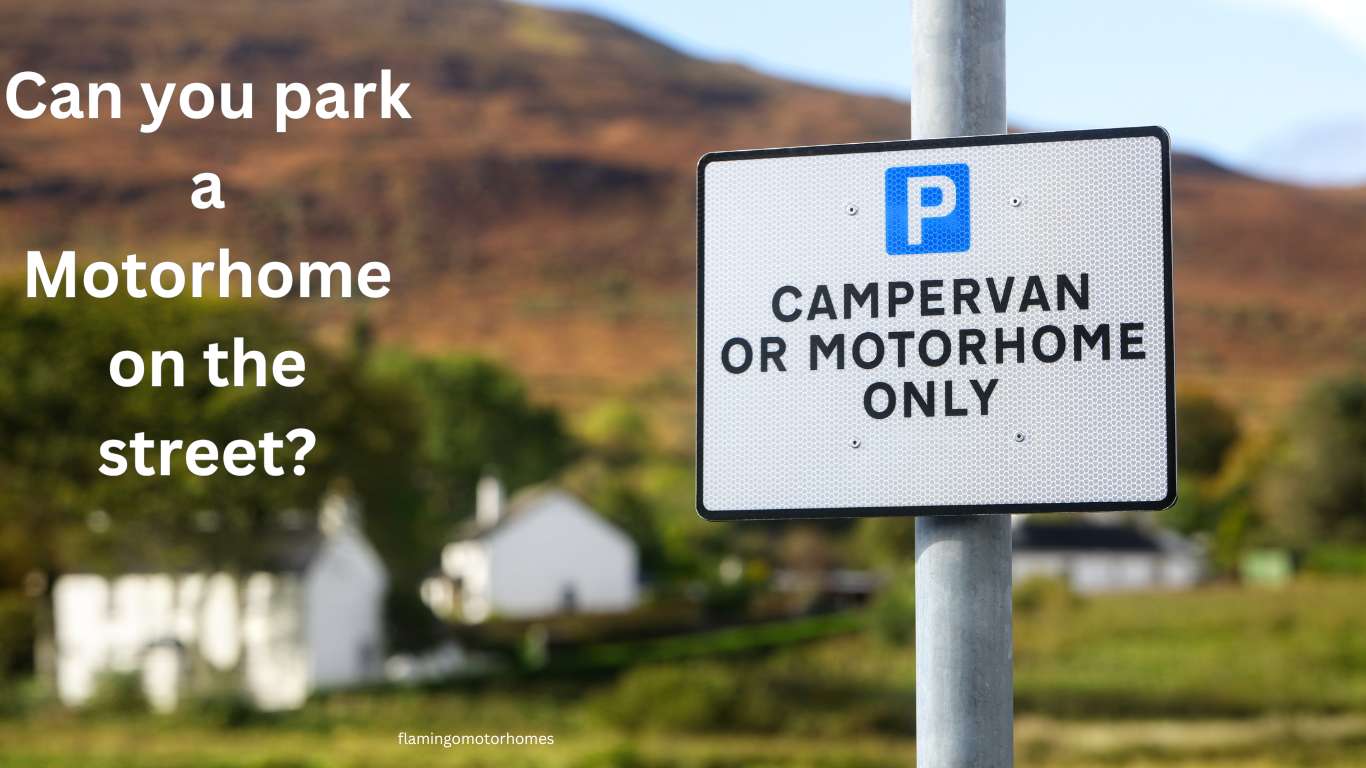Understanding Street Parking for Motorhomes
Can a person park his/her Motorhome on street? Well parking a motorhome on the street can be convenient, but it comes with certain restrictions and considerations. Let’s explore what you need to know about parking your motorhome on public streets. It also depends on state to state policies. Some state make an issue of residential street parking due to over weight of the vehicle
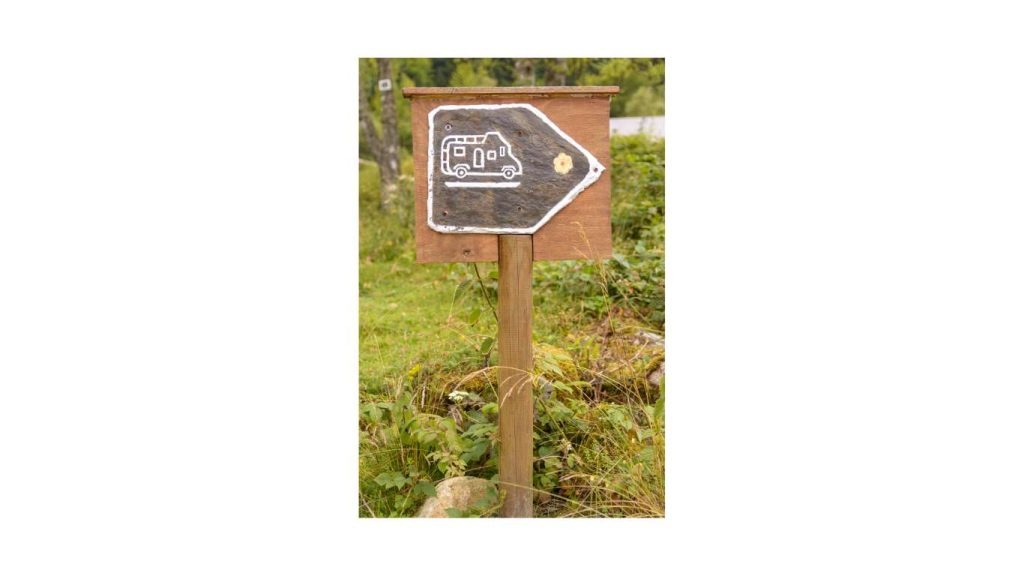
Local Laws and Regulations
Each city and county has specific laws for street parking. Check local regulations regarding:
- Size and Weight Restrictions: Some cities restrict large vehicles on narrow streets.
- Time Limits: Many areas impose time limits, often 24-72 hours.
- Residential vs. Commercial Zones: Rules vary depending on the type of neighborhood.
Temporary vs. Long-Term Parking
While some areas allow short-term motorhome parking on streets, long-term parking usually requires:
- Special Permits: Some cities offer permits for overnight or extended parking.
- Alternate Parking Options: Consider storage facilities or designated RV parking zones if street parking isn’t allowed.

Potential Risks of Street Parking a Motorhome
Street parking may expose your motorhome to:
- Safety Risks: Vulnerability to theft and vandalism.
- Weather Damage: Exposure to sun, rain, or snow.
- Parking Tickets: Risk of fines for exceeding time limits or ignoring local rules.

What Are the Rules for Parking a Motorhome on the Street?
General Motorhome Street Parking Rules
Street parking for motorhomes is subject to a variety of rules, which vary by location. To avoid fines or towing, familiarize yourself with the specific regulations in your area.
Local and Municipal Regulations
Every city or municipality may have different rules for parking motorhomes on streets. Common regulations include:
- Time Restrictions: Many areas allow motorhome street parking for a limited time (e.g., 24-72 hours).
- Permits Required: Some cities require a parking permit for motorhomes, especially for overnight stays.
- Size and Height Limitations: Large motorhomes might not fit within typical street parking guidelines, especially in residential areas.
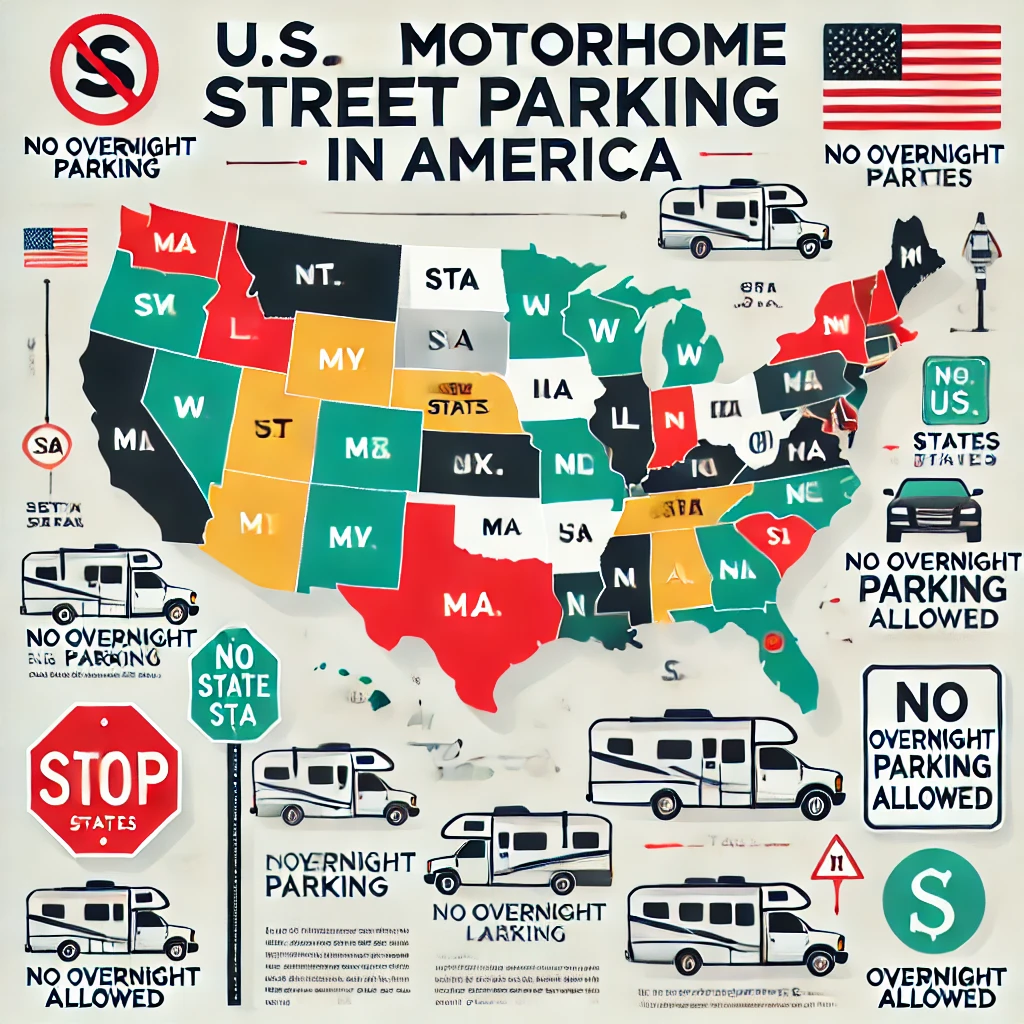
Residential vs. Commercial Zones
Parking rules often differ between residential and commercial areas. Keep in mind:
- Residential Areas: Motorhome parking may be more restricted to avoid blocking neighbors’ views and access.
- Commercial Zones: Some commercial zones may permit daytime parking but restrict overnight parking.
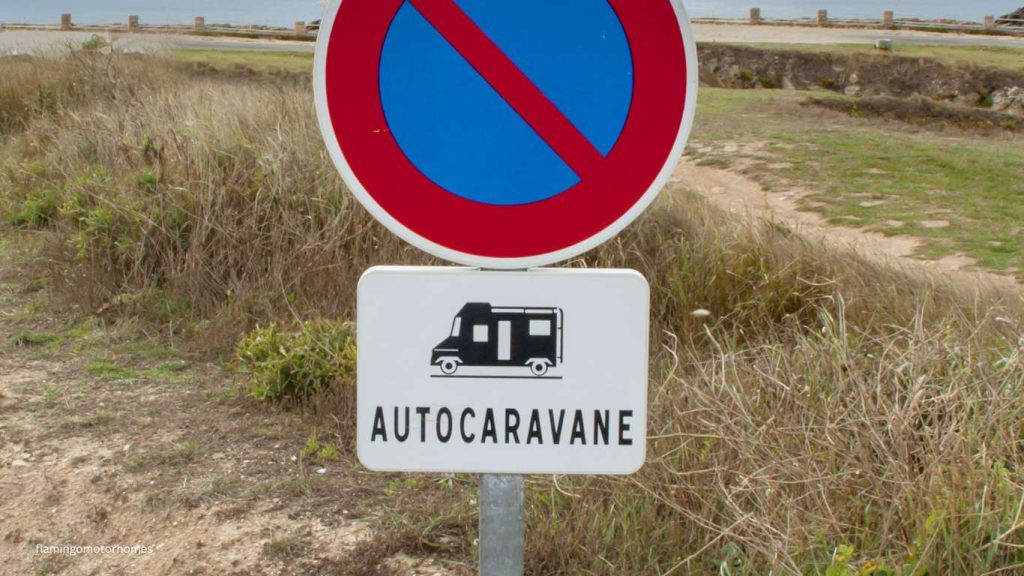
Safety and Community Considerations
In addition to legal requirements, consider the impact on the neighborhood and the security of your vehicle:
- Avoid Blocking Driveways and Fire Hydrants: Ensure you’re parked legally to avoid fines and community complaints.
- Maintain Visibility and Security: Choose well-lit areas and avoid obstructing traffic to minimize theft or vandalism risks of parking Motorhomes on streets.
Additional Tips for Motorhome Owners
- Check HOA Rules: If you live in a community with a Homeowners Association (HOA), they may have stricter parking rules.
- Observe Temporary Signs: Be mindful of street-cleaning schedules or temporary parking restrictions in your area.
What Happens If You Don’t Follow Motorhome Street Parking Laws?
Consequences of Ignoring Motorhome Parking Rules
Not following motorhome parking regulations can lead to various consequences, from fines to more severe penalties. Understanding the potential outcomes can help you avoid costly mistakes.
Common Penalties for Parking Violations
If you park your motorhome without following local laws, you might face:
- Fines and Tickets: Most cities issue parking tickets for motorhomes violating time limits or permit requirements. Fines can range from $50 to several hundred dollars.
- Towing and Impounding: In some areas, especially with repeated violations or safety concerns, your motorhome could be towed and impounded, resulting in additional fees for retrieval.
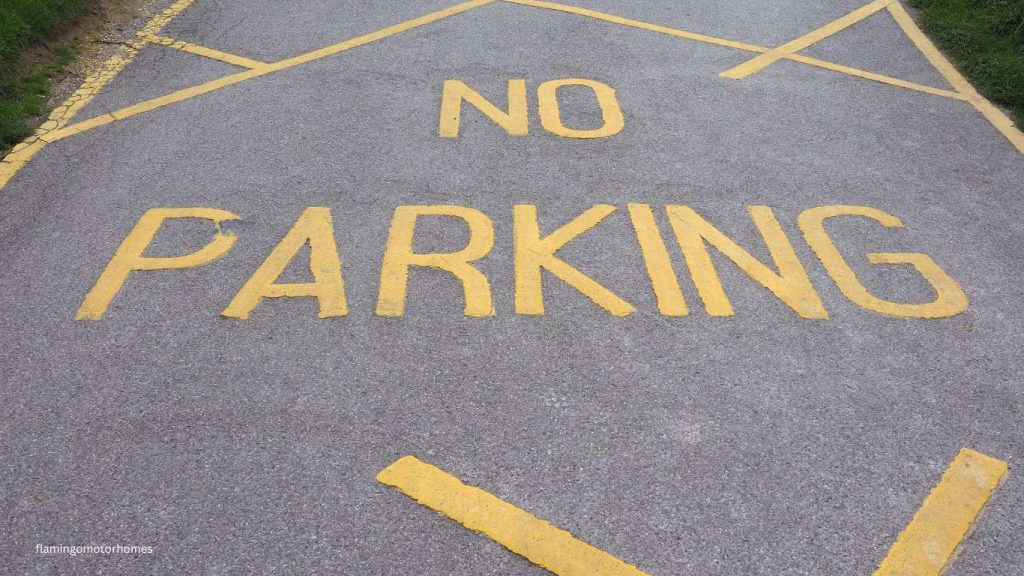
Long-Term Consequences
Repeated parking violations can lead to further issues, including:
- Escalating Fines: Fines may increase if the violation isn’t addressed or if it becomes a repeated offense.
- Legal Action: If a motorhome is abandoned on a public residential street or poses a hazard, some municipalities might pursue legal action to enforce removal.
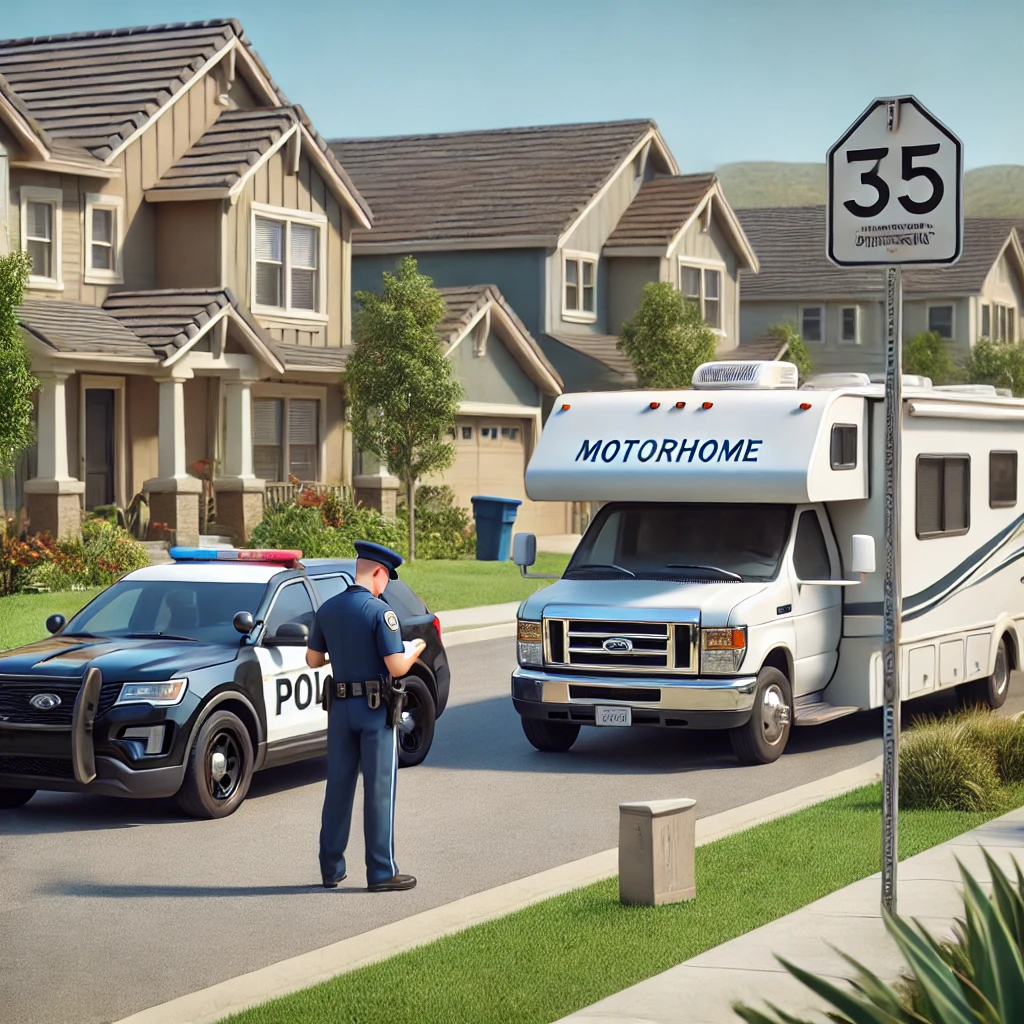
Impact on Neighborhood Relations
Ignoring parking rules can also strain relationships with neighbors and the community:
- Community Complaints: Blocking driveways, sidewalks, or views can lead to complaints from residents and potential involvement from local authorities.
- HOA Penalties: If you live in an area with a Homeowners Association, breaking parking rules may lead to fines or penalties enforced by the HOA.
What to Do If You’ve Forgotten Parking Rules
If you realize you’ve parked improperly, act quickly to minimize penalties:
- Move Your Motorhome: Relocate to a legal parking area or contact a designated motorhome storage facility.
- Check Local Regulations: Review current parking rules to avoid future issues.
- Contact Authorities: If your motorhome is impounded, contact the city’s parking enforcement to retrieve it promptly.
Final Word
Following motorhome parking laws helps protect your investment and maintain good community relations. Regularly review local parking guidelines to stay compliant and avoid the hassle of fines or towing for safe parking of Motorhomes on streets.
How to Report an Illegally Parked Motorhome in Front of Your Home
Steps to Report a Motorhome Parking Violation
If a motorhome is parked illegally in front of your home, you can take steps to report it to the proper authorities. Here’s a simple guide on how to handle this situation.
Confirm Local Parking Violations
Before reporting, ensure the motorhome is violating local parking rules by checking for:
- Time Limits: Verify if the motorhome has exceeded allowable parking time (typically 24-72 hours in most areas).
- Blocking Access: Confirm if it’s obstructing driveways, sidewalks, fire hydrants, or any public access.
- Permit Requirements: If your area requires a permit for motorhome street parking, check if the vehicle displays a valid one.
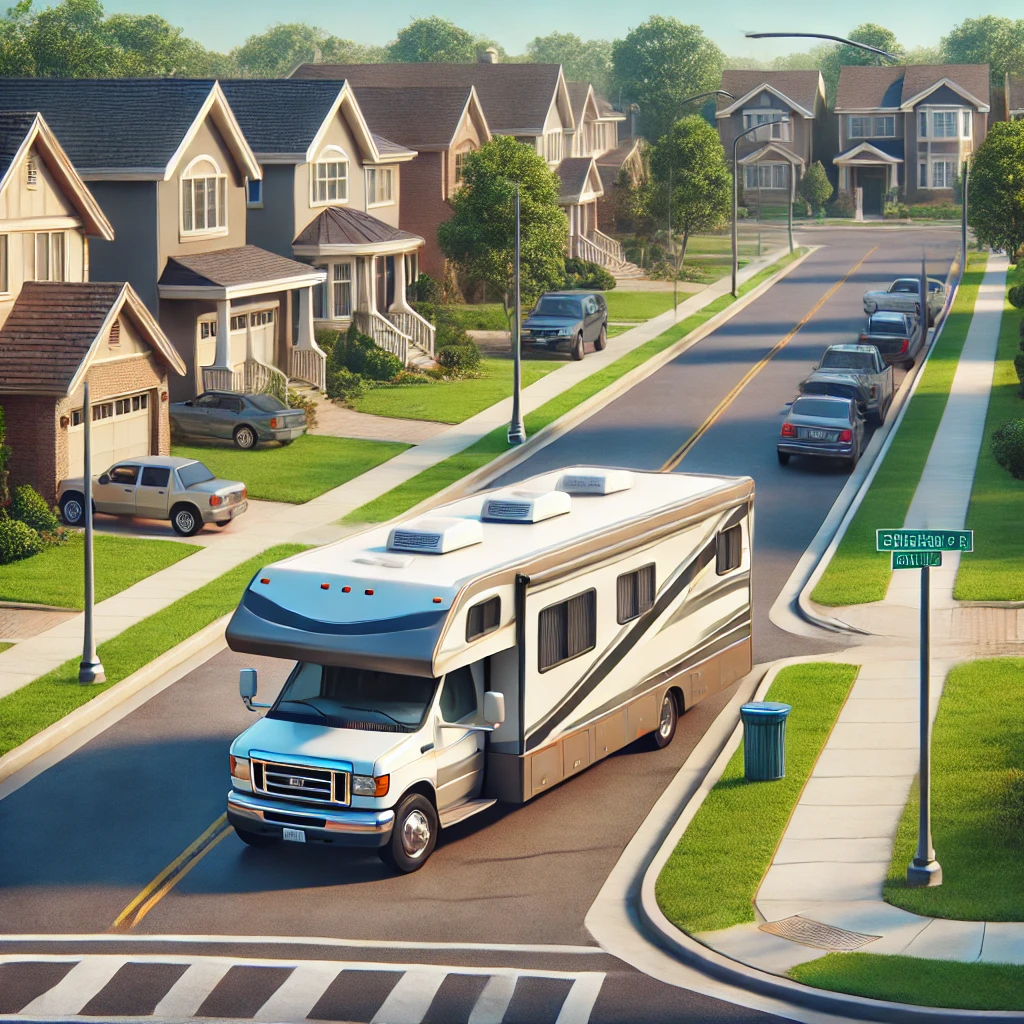
Once you’ve confirmed a parking violation, report the issue to your local enforcement agency:
- Call Non-Emergency Police Line: In most areas, you can report parking issues to the non-emergency number of the local police department.
- Use Online Reporting Tools: Some cities offer online reporting through their website or a specific app, allowing you to submit details and photos.
- Notify Parking Enforcement: Cities with dedicated parking enforcement departments can handle these reports directly.
Information to Provide When Reporting
To make your report effective, provide as many details as possible:
- Description of the Motorhome: Include color, size, license plate number, and any other identifying details while parking your specific Motorhome on streets.
- Exact Location: Share the street address and any landmarks near the motorhome.
- Violation Details: Mention how long it’s been parked, any blocked areas, or other specific rule violations.
Follow-Up Actions
After submitting your report, consider these follow-up steps:
- Monitor the Situation: Authorities may take time to respond. Keep an eye on the motorhome in case it is moved.
- Check for Updates: Some cities provide case tracking for reported issues. Contact the agency if you need an update.
Final Thoughts
Reporting an illegally parked motorhome protects your neighborhood and keeps streets safe and accessible. Always use non-emergency channels for parking issues and provide complete details for quicker resolution. Also Motorhomes should be parked on the streets according to rules and regulations.
More details related to Motorhomes parking rules and regulations will be available on Flamingo Motorhomes

